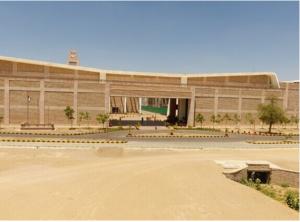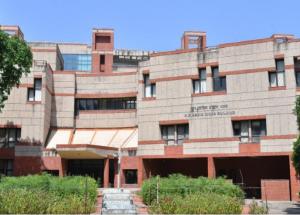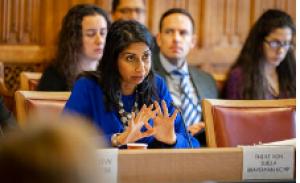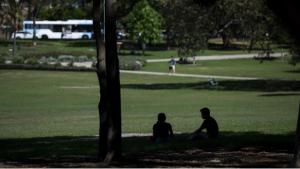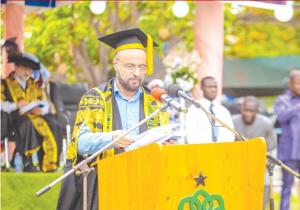Oman has introduced new higher education legislation that opens the door to the establishment of branches of foreign universities and offers incentives to the private sector to set up higher education institutions, along with envisaging mechanisms to regulate the entire sector more broadly.
The legislation is broadly aimed at building specialised national competencies with globally competitive skills and capabilities that meet the needs of development plans and labour market requirements.
The Higher Education Law was promulgated by Royal Decree issued by Sultan Haitham bin Tarik on 4 May.
Dr Khalaf Al Abri, associate professor of education systems and policies at the college of education of Sultan Qaboos University in Oman, told University World News the new law consolidates the regulation of the higher education system in Oman into a single document “after being scattered among various royal and ministerial decrees over a period of more than 40 years”.
He said detailed regulations need to be developed to expand on all the legal issues and clarify the specific standards and processes. “As it is right now, many questions are still open about ‘how’ to achieve certain aspects,” Al Abri said.
Omani Professor Abdallah Daar, a former member of the scientific advisory board to the secretary-general of the United Nations, told University World News the legislation was “a very good and timely law” that would “attract foreign and private institutions of higher learning for the benefit of Omanis”.
“In the long run, increasing higher education facilities in Oman is bound to play a major role in achieving Oman’s sustainable development,” Daar said.
Oman Vision 2040
The Higher Education Law corresponds to the future goals contained in the Oman Vision 2040 strategy, which includes among its top priorities education, learning, scientific research and national capabilities for the development of a knowledge-based society and competitive national talents.
It is also in line with recent academic studies which indicate that the higher education sector is a vital tool for achieving Oman’s vision and developing a knowledge economy.
The new law deals with all the regulations and functions of higher education institutions in terms of their establishment, specialisations, programmes, quality, scholarships and other mechanisms aimed at consolidating the system.
Key points in the legislation include the following:
• Foreign institutions of higher education are allowed to open one or more branches following agreement from the ministry and approval by the Council of Ministers;
• Non-governmental [private] higher education institutions must apply to the ministry for a licence to establish an institution after the approval of the Council of Ministers.
• A non-governmental higher education institution must, before being authorised, present internal regulations governing its academic, scientific research, administrative and financial affairs, including tuition fees, for approval.
• Non-governmental institutions of higher education shall be exempted from paying all taxes for a period of five years from the date of starting the activity, renewable for a similar period, and for one time.
• The institution of higher education is prohibited from participating in, exploiting or promoting any political thought, sectarian, religious or ethnic, or calls for contempt for religions, and it is also prohibited from promoting any beliefs or ideas or conducting activities or events that would influence the unity of society and its values.
• The institution of higher education may sign memorandums of understanding, agreements, or cooperation or association programmes with local or international academic or professional institutions after the approval of the ministry.
The law states that the Arabic language is an official language in higher education institutions. However, after the approval of the ministry, it is permissible to teach in other languages.
The law permits the provision of study programmes through blended learning, distance learning or other educational methods.
Benefits of foreign campuses
Al Abri said foreign branch campuses are “expected to contribute to providing quality education and research as well as developing the knowledge-based Omani economy which will enable Oman to achieve its Vision 2040”.
“There is no doubt that these branches will contribute to cultural diversity by bringing in international faculty, staff and students,” said Al Abri, who is co-author of a September 2022 study on the readiness of higher education institutions in Oman for the fourth industrial revolution and Oman’s Vision 2040 from the point of view of academic staff and experts.
Associate Professor Aisha Al-Harthi, head of the educational foundations and administration department at the college of education of Sultan Qaboos University in Oman, told University World News Oman “cannot isolate itself from higher education institutions in the world, especially in the more specialised areas that are still missing in the Omani higher education system”.
“The new law puts equal responsibility on both public and private higher education institutions to achieve sustainable development,” Al-Harthi said. “Thus, the role of foreign campuses in Oman will [be to] contribute to bringing more diversity in terms of programmes and study areas to promote sustainable development and scientific progress in different areas.
“This can provide unique higher education programmes that can fill a gap in the current offerings, so they can attract quality candidates and provide competitive opportunities and an added advantage,” said Al-Harthi, who is the lead author of a June 2022 study titled “Learner readiness for MOOCs in Omani higher education institutions: disparities between projections and reality”.
Private sector investment
According to Al-Harthi, the law “signals the transfer … of private sector investment to higher education [in order] to expand university access and opportunities to provide a competitive advantage to Omanis by bringing in quality programmes that can meet the standards of the new Omani Educational Qualifications Framework and institutional and programmes’ accreditation standards”.
Daar said it was important to note that the Ministry of Higher Education, Research and Innovation will actively regulate the new private instructions. “While there already are a small number of private institutions of higher learning, this law envisages a huge scale-up,” he said.
Al Abri indicated that since the 1990s, the Omani government has “sought to involve the private sector in providing higher education within its geographical borders. This trend has developed a lot, as the number of private higher education institutions has increased to reach 27 institutions recently”.
“The Higher Education Law also empowers the private sector to contribute more, along with governmental higher education institutions, to achieving Oman’s Vision 2040 by graduating qualified cadres, conducting scientific research, promoting innovation and achieving sustainable development,” Al Abri said.

Source link: https://www.universityworldnews.com/post.php?story=20230512152955908

















